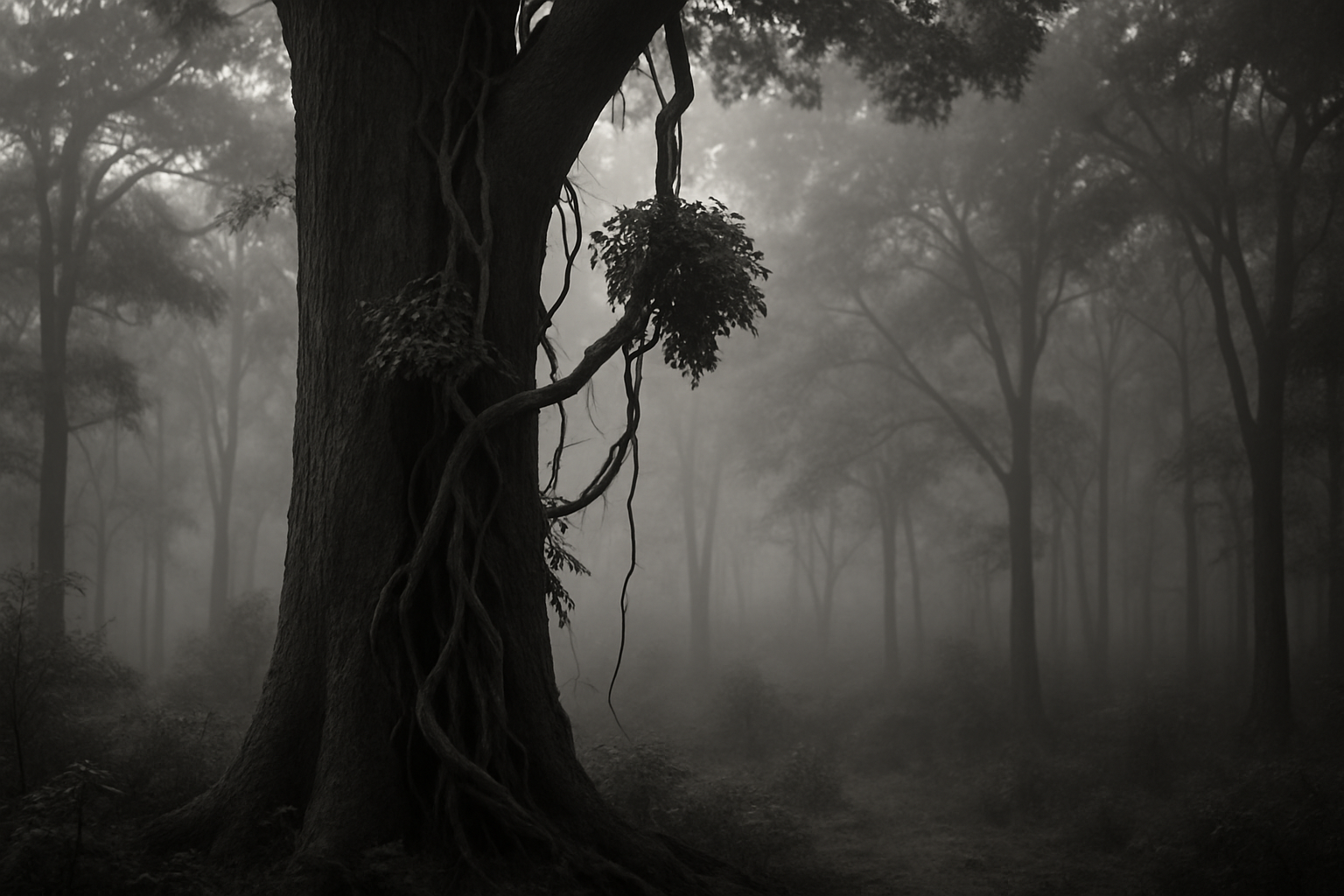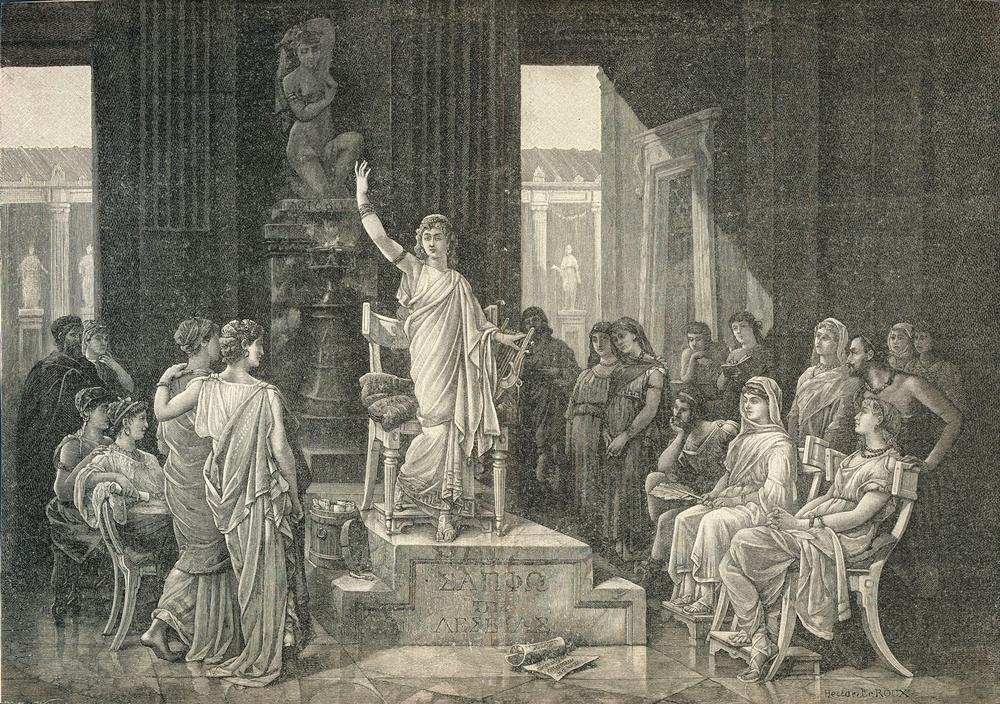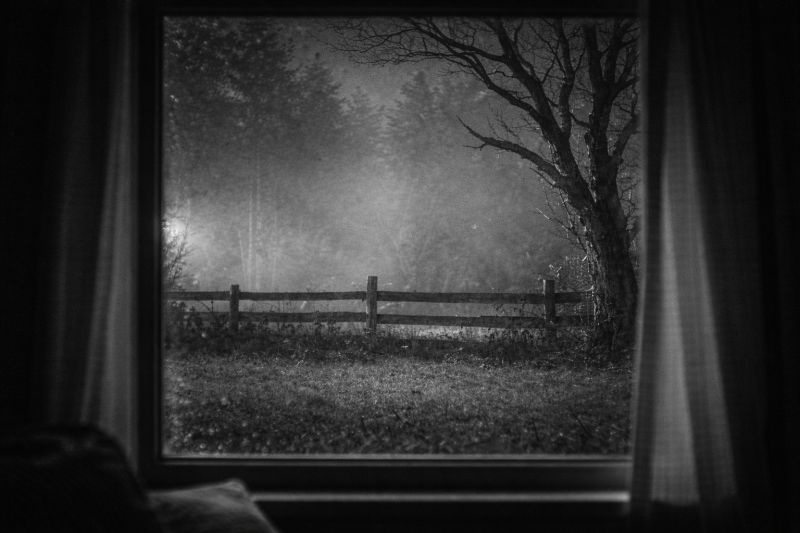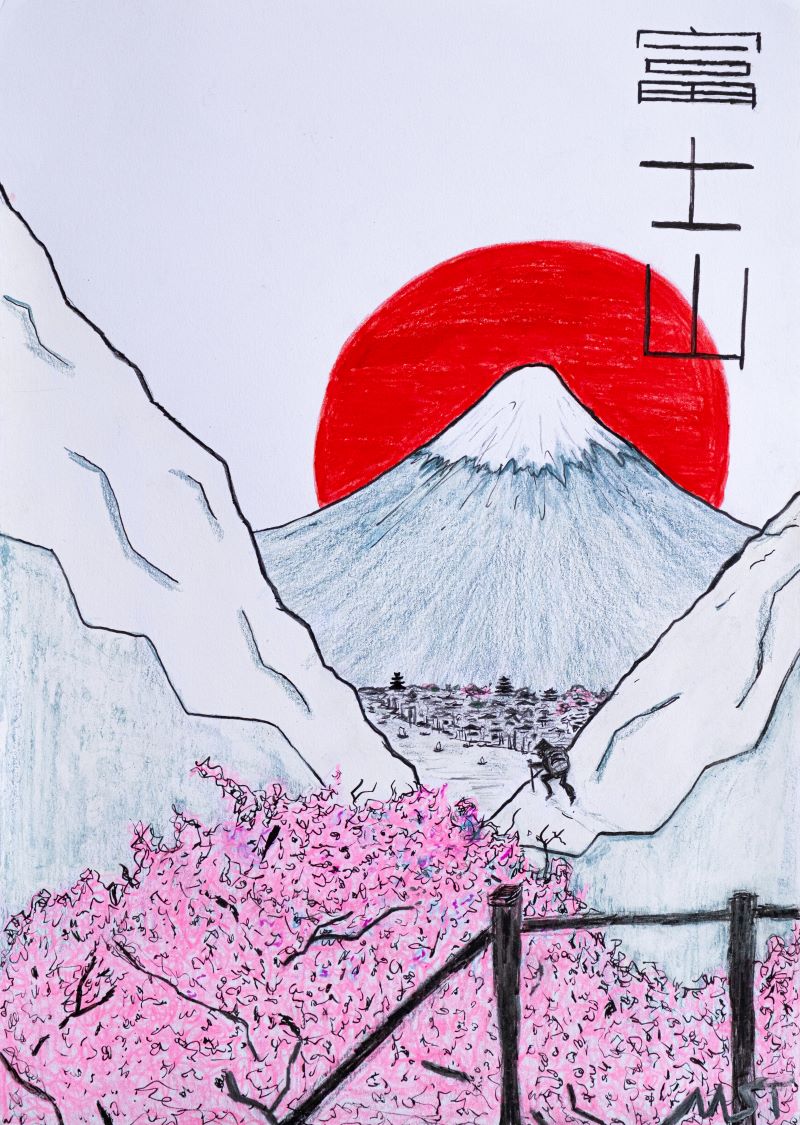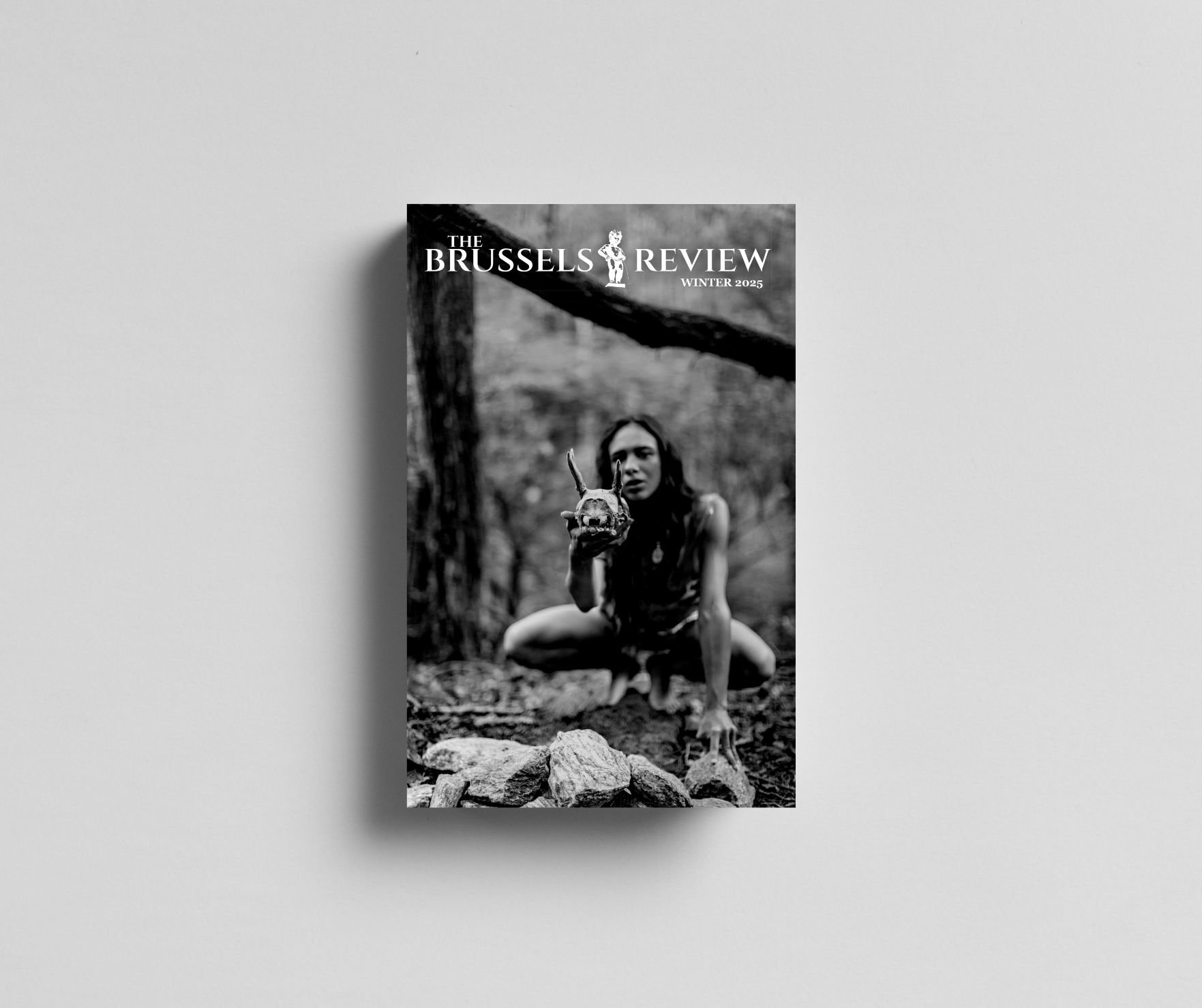In my land we talk about possession, a foreign body invading and inhabiting another, while subjecting the host to torment. We are also familiar with a much benign form, in pre-colonial times one of the incredible manifestations of this occurs during religious rites, there are verbal invocations which a votary is to perform, the process results many a time in raptures in which the adherent is caught, sometimes so violent that the performer is steadied by other supporting adherents to prevent a fatal fall. There is a consensus among the people that the act is a symptom of spiritual possession, although it would also later manifest in the orthodox and Pentecostal forms of Christianity which pervaded the indigenous lands of Africa.
We even find the incredible scattered all over our literature, of the fictional there is one in D.O. Fagunwa’s work wherein the character is a child possessed by a demon so malicious and destructive, he is cursed with physical strength and stature that he almost kills his mother at his birth, on the day of his birth he begins to walk and talk, nagging about the social affairs and hygiene of the village, there is also his ruinous appetite for food, for his gut is as a black hole, consuming everything edible: cornmeal, moin-moin, all manner of fruits and vegetables, it becomes clear that even if Àjàntálá’s physical strength could be curtailed by the most powerful babaláwos, to tie his guts and save his family from food insecurity will be a difficult task.
Approaching the mythical, fictional, and literary as analytic tools for ideological transformation is sacrosanct, especially when foreign cultures have been violently imposed on a people by incursion, maintained by political and economic dominance, members of this group must approach history chiefly for dialectical purpose. From this little thesis it is evident that idealism is a vital fulcrum on which both cultures lay, and that it is commonplace to find a lot of less dominant cultures appearing in their contemporary ways of life in the form of syncretisation, where the few shards of the old native customs that remain are the unprogressive idiosyncratic behaviours, which serve the new in rhetorical ways that prevent any form of transformative renaissance – the idealistic similarities would be seen as a common ground for aggressive integration with unimaginative adages like: “conquest is human nature”, “it is in the nature of the strong to prey upon the weak”; a convenient reference to the historical internecine conflicts as a universal truth, without a survey into the component and material nature which led to them. It leads to gross intolerance and trampling on the most basic human rights through misogyny, homophobia, and patriarchy which are all upheld by conservativism fuelled by religious tenets.
That is not to say that real and material conditions cannot act as a contradicting element on the other end of the spectrum, nor can one conclude that the material cannot lead even the most idealistic person to see beyond the veil of their limited worldview – sometimes the scales fall off, the strongest braces may crumble and the puppeteer is revealed. It however is the duty of any visionary to not wait around for the rare chance of contradictions rising to the surface, they must co-opt the terms of the dominant culture as a means to an end of rhetorical goals; in this case the material representation of the condition of their people, for every contradiction can be exploited to this advantage. That explains why I choose possession in this case, to create a parallel of plausible credibility, that even the most unbelieving believer may easily notice the nearness of their reality to just aspirations in this literary form.
One of such living evidences of possession which for centuries our people have intereacted with, is the àfòmọ́ (African mistletoe) a plant parasite which invades a vastness of wealth, dense foliage abundant in nutrients and thriving flora, in utter privation the parasite creeps up and affixes to the trunk of trees, sucking up the nectar of life from the giant, giving nothing in return but malady and maladaptation. This divestment of nourishment continues as long as the relationship exists wherein the parasite claims possession over the resources of the host.
Here we clearly have a relationship of invasion and suffering, the voracious utilisation of resources to depletion, and the devastation of the environment wherein the materials are extracted, it is the dispossession of the possessed. While this goes on there is a coordinated effort to obliterate ancestral memories which can serve as a trigger for seeking true justice for the land, the elders’ agedness becomes something to scoff at for their lack of productivity, for human beings and their ability to rent their bodies out is an asset of this exploitation, and when the once luxuriant flesh grows saggy, when the joints, ligaments, and cartilages begin too early to dissipate due to the subjection as a beast of burden, the human body becomes a dispensable liability. There is an initiation and maintenance of campaigns of subversion, against the resistance which seeks to restore and repair the damage by which the environment is beset.
Amos N. Wilson calls this possession somnambulistic since it happens for long and the host remains a host; long stripped of the wherewithal to exorcise the foreign parasite, it begins to internalise the newspeak fashioned against it by being forced to look up to a few of its members who have become a travesty of the conqueror, decked with the best clothing, eating from the rich banquet across the master’s table, basking in the spoils and pilfered jewels of native labourers, the blood and sweat of their own people – who are coerced to see treachery as an inevitable event, or rationalise it by finding parallels in nature, the ferocity of predators in the jungles and savannahs become a talking-point for lateral and descending violence against their kind, or in their distorted history as earlier pointed out. This is a means to an end of integration, of an evasive upward class mobility, and the alienation from the fruits of their labour produces a motivation for this aspiration, in the absence of liberating consciousness which across generations had begun to dwindle into the abyss of oblivion, by a concerted effort to put out efforts of reparations.
The native begins to live vicariously through the minority ilk who are sickened by treachery, who are dipped in the artifice of Yurugu as Marimba Ani describes it, who have not only shedded the most important Asili (central seed of culture) of their people, but are also committed to securing and consolidating their position as the managers of their masters’ affairs, as well as the leechcraft that comes with them. In this class, not only the avarice of the empire is made manifest, we also have the individualistic sickness, the irremediable spirit of betrayal which comes from the loyalty they have for their masters; the product of cultural isolation well compensated to keep the majority powerless, in service of this relationship they create a hedge between themselves and the people, employing police violence when uprisings erupt, and using influencers as subtler means in social media spaces during the time of “peace”, a time even more dangerous for the people than that of the uprisings, for by the means of this buffer class, the doctrines of slumber and surrender are disseminated.
The native who constitutes the majority class is possessed by a spirit not his own, he talks like it, walks like it, he hears voices like we see in every cinematic representation of this relationship, where the sufferer embodies the haunting spirit, the unhinged mannerism, this crass mimicry; neither appreciated nor embraced by the inflictor is needed to perpetuate the relationship, and sustain a reality of dominance which relies on said somnambulism, the chief traits of which are: hallucinations, disjointed expressions, the lack of coherent thoughts, illusions, lack of direction, numbness of sense organs, the lulling of logic processes, and a radical sense of individualism. Which is why it is very common to find the native applying conservative model of thoughts to dissect collective problems, and dismissing real historical accounts as a past to be shameful about, not from a place of empirical critique, but from an idealistic viewpoint.
The contradiction of this intercourse is bare; evident to folks who have managed to unsubscribe from the schizophrenia, no concealment of bigotry can work under a system built on hierarchy (even when the sleep-walker has struggled to be treated in basic civility), the hegemonic cornerstone compels out the personal and institutional prejudice, this is usually a wake-up call, no matter their social standing; the one who has attained the pinnacle of aspiration for the rest of the oppressed; who thinks they have won the highest validation of their master, and the majority whose hard labour is contained in the aspirations of not just material comfort, but also of becoming luminaries under the system which oppresses them, the hard work geared towards claiming the dignity they were indoctrinated into believing has to be earned, not inalienable by the simple virtue of being human.
The musty symptoms of this affair is the tapering of self-esteem to near obliteration, since the native is forced to highly regard all things foreign and not his own, we have had movements launching campaigns against this theme from Garvey, the Panthers, to the Negritude movement. The attempt to create a natural aesthetic to suffuse a people with pride and reclaim racial esteem, to be woken up by the people’s consciousness rather than the whip of power. That this campaigns would – in part – herald the beginning of identity reclamation, their ancient knowledge of conserving community and ties to the land, a spiritual bond and pact to live in symbiosis with the elements which saves them – the sparse groves (making them into sacred venerated zones), the dense forests, the constant tending of their rivers.
The possession has to be purged and the native re-inducted into their Asili, the contradiction must be raised, the low-hanging fruit is the dispossession of the possessed, the historical gravity of their material loss, the autonomy which was larcenously lost has to be reclaimed, and every module of doctrine which upholds bigotry dialectically exposed; the pseudo sciences created for this purpose as a device of internalising self-hatred amongst the oppressed, the relegation of ancient methods of conserving nature as “uncivilised”, and the glorification of modern colonial commodification of all life to ecological catastrophe deemed “stimulating the economy”, the shackles of rabid individualism which binds must be broken, and scientific reasoning raised to humane proportions.

